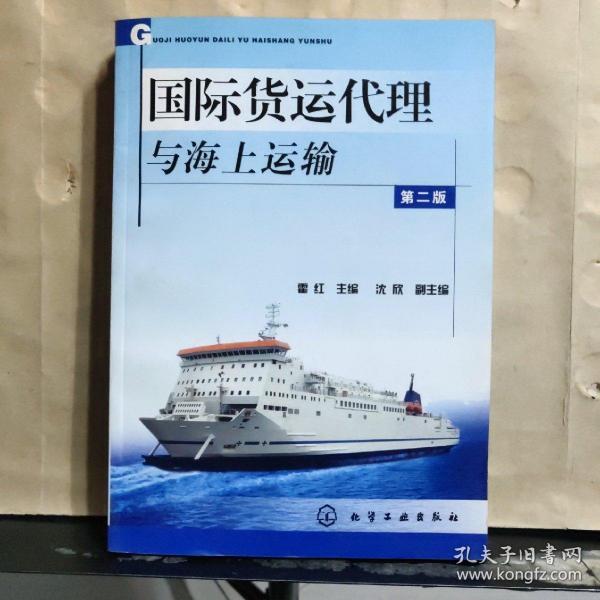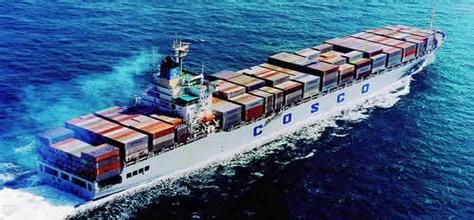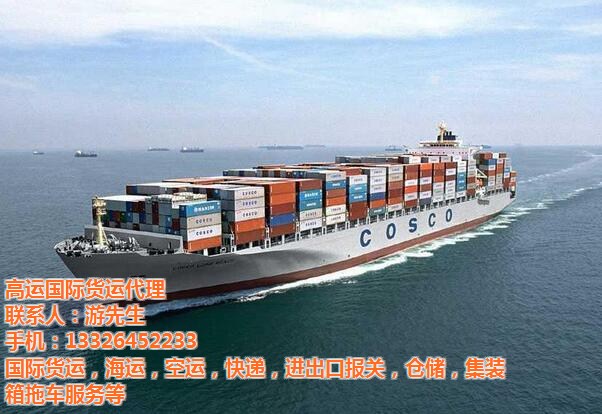国际海事货物运输的重要性及其挑战探究。随着全球贸易的不断发展,海事货物运输成为连接各国经济的关键纽带。海事运输也面临着诸多挑战,如海上安全问题、物流效率问题以及环境保护问题等。本文旨在分析国际海事货物运输的重要性,并探讨其面临的挑战及应对之策。
In today's interconnected world, international maritime cargo transportation plays a pivotal role in global trade and economic development. It facilitates the movement of goods across vast distances, connecting nations and enabling the exchange of resources, products, and services. This article examines the significance of international maritime cargo transportation, as well as the challenges it faces.
The Importance of International Maritime Cargo Transportation
International maritime cargo transportation is a critical component of global supply chains. It allows businesses to import and export goods, ensuring the smooth functioning of international trade. The shipping industry has played a significant role in the development of economies worldwide, connecting producers and consumers across different regions. By facilitating the movement of goods, international maritime cargo transportation contributes to job creation, economic growth, and poverty reduction.
Moreover, international maritime cargo transportation helps in promoting global cooperation and integration. It enables nations to specialize in their areas of strength and trade with other countries for their needs. This specialization results in increased efficiency, productivity, and innovation, leading to overall economic progress.
Challenges Faced by International Maritime Cargo Transportation
Despite its importance, international maritime cargo transportation faces several challenges that need to be addressed. One of the major challenges is the increasing demand for efficient and reliable shipping services. With the growth of e-commerce and globalization, the volume of goods transported through ships has increased significantly. This has led to congestion in ports and on shipping routes, resulting in delays and increased costs. To address this challenge, shipping companies need to invest in modern technology and infrastructure to improve efficiency and reduce delays.
Another challenge is the environmental impact of maritime transportation. Shipping activities generate emissions that contribute to climate change and pollution. To mitigate these impacts, shipping companies are adopting cleaner fuels and technologies to reduce emissions. Additionally, governments are playing a crucial role in promoting sustainable shipping practices and encouraging the use of renewable energy sources in the shipping industry.
Moreover, the complexity of international maritime laws and regulations is another challenge faced by international maritime cargo transportation. Different nations have different laws and regulations that need to be adhered to, which can be complex and confusing. To address this challenge, shipping companies need to stay updated with international laws and regulations and ensure compliance with all the necessary regulations. Additionally, international organizations such as the International Maritime Organization (IMO) play a crucial role in coordinating and harmonizing international maritime laws and regulations.
Lastly, the competition among shipping companies is another challenge that needs to be addressed. With the growth of the shipping industry, more companies are entering the market, leading to increased competition. To stay competitive, shipping companies need to invest in modern technology, improve efficiency, offer competitive prices, and provide reliable and efficient services.
Conclusion
In conclusion, international maritime cargo transportation is crucial for global trade and economic development. It connects nations, facilitates the movement of goods, and promotes global cooperation and integration. However, it faces several challenges that need to be addressed, including efficient shipping services, environmental impacts, complex international laws and regulations, and competition among shipping companies. To address these challenges, shipping companies need to invest in modern technology and infrastructure, adopt sustainable shipping practices, stay updated with international laws and regulations, and offer reliable and efficient services. Moreover, governments and international organizations need to play a crucial role in promoting sustainable maritime transportation and coordinating international maritime laws and regulations.



